#stray dogs that will graham picked up off the street
Text
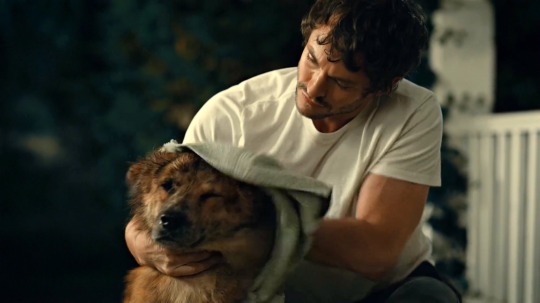
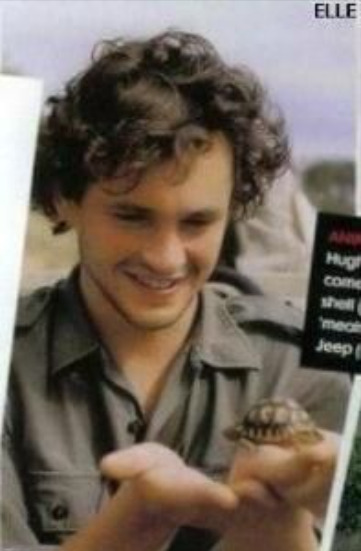
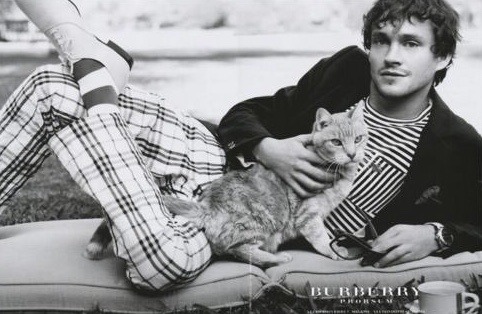
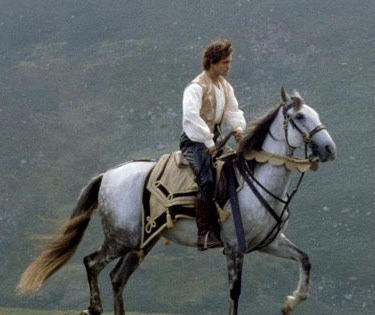
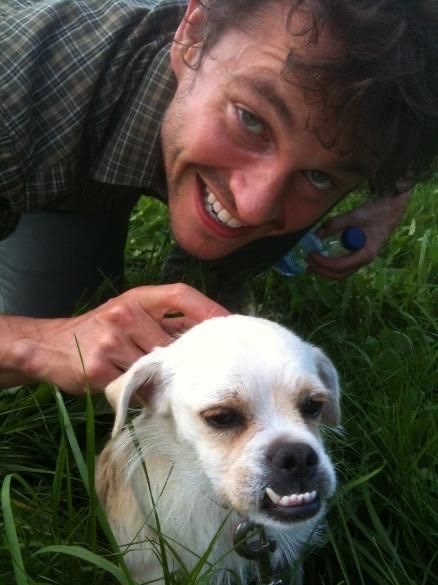
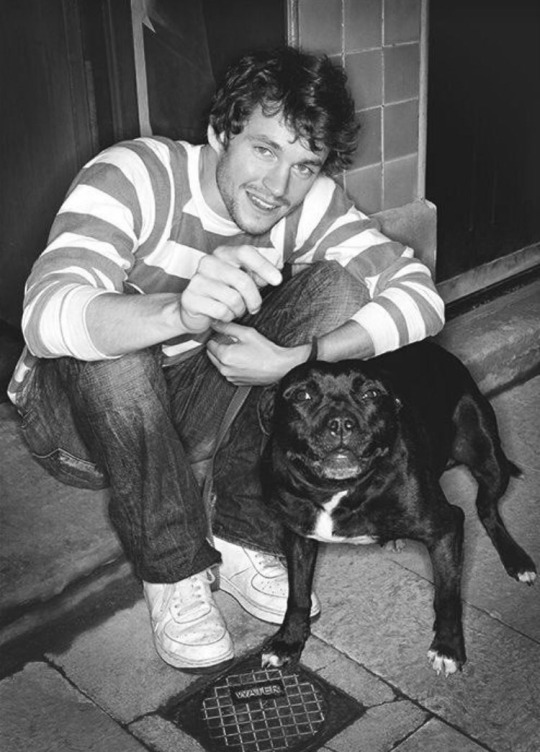
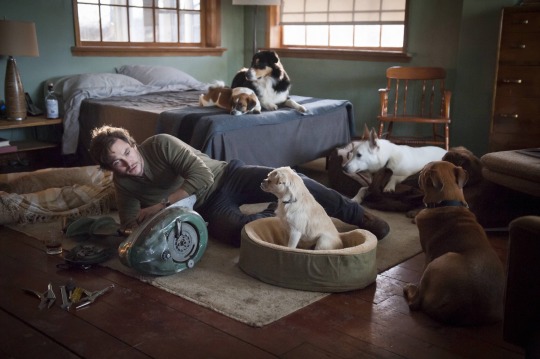
hugh dancy with animals because they are clearly his best friends
#hugh dancy#will graham#hannibal#winston#hannibal season one#dogs#cat#baby turtle#horse#burberry#photoshoot#actor#fancy dancy#ella enchanted#prince charmont#stray dogs that will graham picked up off the street#trying to think of every hashtag i can on these posts so i get more reach <3#look at his fluffy hair#sorry for the low quality#i am going to plaster these pictures all over my walls#nbc hannibal
323 notes
·
View notes
Text
W.R. BURNETT

William Riley Burnett isn't quite as well known as other crime writers like Hammett and Chandler, but the titles of several W. R. Burnett novels and films everybody knows. His career and his influence stretched from gangster novels and movies, which he went a long way to defining, through noir to blaxploitation and beyond.
According to Burnett, a good place to begin his story is in a fleabag in Chicago, when he was a twenty-seven-year-old hayseed from Ohio who in six years had written some one hundred stories and five novels, not one of them published. On his first night in the big city, sleeping in that cheap hotel, he was jolted out of bed by a series of explosions across the street. Rival gangsters had been arguing over the rake in the parking garage across the street. Things got heated and they started throwing hand grenades -- "pineapples," folks called them then. That was Chicago in 1928. "Capone was King," Burnett later wrote. "Corruption was rampant... Gangsters were shooting each other all over town; in fact, I 'heard' one killing over the radio. It happened in a cafe while a dance-band broadcast was in progress. Two shots came over distinctly, the music slurred to an abrupt stop, then the air went dead."
Intrigued, Burnett started hanging out with cops and hoods, taking notes, and ended up writing a gangster novel he originally titled The Furies. The first New York publisher he sent it to rejected it. He gave it a new title and sent it off again. In 1929 it was published as Little Caesar.
Along with Hammett, whose Red Harvest had come out six months earlier, Burnett was fashioning a new class of crime novel as literate pulp, just as the syndicates were emerging and the Depression was about to redraw the entire social landscape. The writing is very spare in a Hemingwayish way, yet vividly descriptive when it needs to be. His characters have names like Scabby and Limpy John and Killer Pepi, and they speak a Chicago gangster patois he'd heard on the streets, full of hard guys pumping lead out of gats and rods, new to most readers at the time but soon universally recognized. They're vain to the point of girlishness, constantly fussing with their hair and fawn-colored spats and diamond stick pins. They're cocky and quick to take offense because they're so insecure. They're far more tender, sympathetic and loving with each other than they are with their dames. "I would not shoot Rico if he shot me first," one says. "Rico is my friend and I love him with a great love." Rico ends up forfeiting his life because he can't bring himself to shoot an old pal. As opposed to:
Olga Stassoff was just putting the finishing touches to her make-up. Joe came in softly and stood watching her. She began to sing.
"If you're singing for me," said Joe, "you can stop any time."
Olga turned around.
"Well, what are you doing here? Broke?"
"Shut up," said Joe.
Then he turned and walked out of the room.
Scholars have made much of the homoerotic subtext in all this, but then scholars can see homoerotic subtext in a stick of gum. Probably what Burnett was really picking up on was the peculiarities of Mediterranean masculinity as expressed in the largely Italian milieu of the late-1920s Chicago gangster. Film historian Thomas Doherty points out that "foreign" gangsters -- Italians, Jews -- were still pretty mysterious to a lot of Americans; through the 1920s they'd heard more about all-American outlaws like Bonnie and Clyde, John Dillinger and Baby Face Nelson. The rise of organized crime syndicates -- whom Burnett much later called "just businessmen who don’t abide by the rules" -- was also news to many Americans at the time.
Little Caesar was an instant hit. So of course was the film adaptation. The movie was a huge box office success at a time when the Depression was cutting attendance figures by half, and it made Edward G. Robinson a star. It's not nearly as tough or brisk as the book, though Robinson is great in it. Both the book and the movie had their share of critics who expressed outrage that Burnett seemed to be sympathizing with and "humanizing" his hoodlum characters.
Hollywood called and Burnett answered. For the next forty years he'd be there, writing both novels and films, many of them successful, a few of them classics.
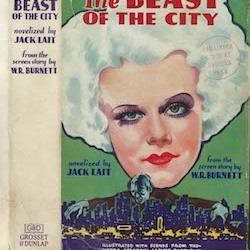
There was The Beast of the City in 1932, with Walter Huston as an unscrupulously tough crime-busting cop who'd later be seen as a pre-echo of Dirty Harry. Howard Hughes called on Burnett to make some sense of more than a dozen draft screenplays for Scarface, based on the Armitage Trail novel published around the same time as Little Caesar. Burnett compiled the best scenes into a master draft, then Ben Hecht applied the polish. The result was the last of the great pre-Code gangster films, a movie much harder and more raw than Little Caesar.
Butnett's oddball 1935 comedy The Whole Town's Talking is a kind of meta-crime story, with Edward G. Robinson brilliantly playing two roles, sometimes in split-screen, as a meek bank clerk who's identical to a vicious killer. Jean Arthur's great in her snappy role too, but then isn't she always. Burnett's prizefighter novel Iron Man was made into three films, Iron Man in 1931, Some Blondes Are Dangerous in 1937, and Iron Man again in 1951. His novella Dr. Socrates, about the clash of a small-town doctor and a hoodlum on the lam, was first serialized in Collier's, then made into the 1935 film of the same name. It starred the great Paul Muni and Ann Dvorak, who'd been paired a few years earlier as the possibly incestuous Tony and Cesca Camonte in Scarface. It was remade in 1939 as the Bogart vehicle King of the Underworld.

By his 1940 novel High Sierra, both Burnett's writing and his tough guys had fully matured. His style is more relaxed, still handsomely descriptive but with more psychological depth. Roy Earle in the book is more broken and melancholy than the Dillinger-inspired outlaw Bogart plays in the film, more jittery and uncomfortable in the world after years in stir. He's not thoroughly a bad man, more of a bad-luck stray like the dog Pard. He's weary and lonesome and sick, showing his age in his inability to control either his flashes of snarling violence or his fits of nostalgic longing. The newspapers call him Mad Dog but Old Dog would be more fitting. His affair with Marie, the only other character as tough and savvy as he is, would be totally mysterious to the hard guys in Little Caesar.
The film adaptation came out in 1941, directed by Raoul Walsh, with a screenplay by Burnett and John Huston that's pretty faithful to the book, though they made the necessary Hollywood concessions. In the novel, Velma's not the innocent little hick she is in the film -- she's damaged goods in more ways than the clubfoot -- and it's explicit that Marie starts out "just a lay," as Roy tells her, then worms her way into his heart just like Pard does. Burnett and Huston tacked on the movie's big melodramatic climax as well. In the book Roy makes sure Marie and Pard are well out of harm's way, then dies alone up in the mountains, shot by a gunman he never sees, taking his bullet quietly, almost wistfully. It probably wouldn't have made good cinema but it's a more fitting end for him. This movie would also get remade twice, as a Western in the 1949 Colorado Territory and then as the grimy 1955 I Died a Thousand Times, with Jack Palance as Earle and Shelley Winters doing the Ida Lupino role.
Having helped to invent the modern gangster novel and picture, Burnett wrote some of the darkest, hardest, and ethically murkiest postwar noir, creating a world where it's nearly impossible to tell the good guys from the bad ones because most everybody's tainted or bent in some way. In the 1946 Nobody Lives Forever, John Garfield is both a war hero and a con man. When he comes home from the warfront, like a lot of other vets he tries to pick up his old life, only to find everything's changed while he was gone. It's sort of The Best Years of Our Lives for hoodlums.
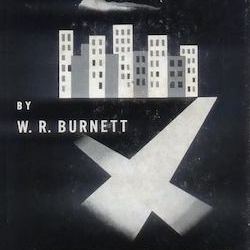
In The Asphalt Jungle, published in 1949, the world's gone so dirty and upside down that the supposedly upstanding citizens are actually worse than the bad guys. The cop and the lawyer are more crooked and sleazy than the hoods who pull the heist, and some of them are plenty sleazy. Like Roy Earle, Dix Handley is a throwback, a farmboy operating by a kind of Old West outlaw code of honor he probably read as a kid in pulp magazines. He's pulled down by lowlifes who are thoroughly modern and urban, and as innocent of ethics as rats in an alley. Huston made the film the following year. It reappeared as the forgotten 1963 George Sanders movie Cairo and again in 1972 as the blaxploitation flick Cool Breeze. A tv crime series called The Asphalt Jungle ran for one season in 1961.
Burnett also co-wrote the screenplay for This Gun for Hire, adapted from the Graham Greene novel. He adapted the Eric Ambler spy novel Background to Danger, worked on the anti-syndicate potboiler The Racket and on several Westerns and wartime pictures.
He was still at it in the 1960s, still writing crime novels like The Cool Man, published in 1968. At a time when other pulp writers were cranking out endless knockoffs of James Bond or trying to get with the hippies and drugs, Burnett stuck with what he knew best. Like High Sierra and The Asphalt Jungle it's about a big heist gone wrong, leaving some of the crooks dead and the rest spatting over the spoils. Now almost all his hard guys are anachronisms, noir characters who've survived into the Swingin' Sixties by wits, guile or just brute force. They're at the opposite end of life from the cocky young narcissists in Little Caesar, old guys moving deliberately down crooked paths they know by rote, pursuing their agendas -- money, revenge, self-preservation, sex -- by instinct now. When fate throws them curves they take it, like Roy Earle would have, with a resigned shrug. By the end of the book all their machinations have just sort of petered out; a few of them are dead and the rest are stranded like sharks out of water. You have to wonder if Burnett was feeling a bit like that himself by this point.
Burnett also co-wrote the screenplay for The Great Escape with James Clavell, his last Hollywood coup. He did some uncredited work on Ice Station Zebra, and wrote episodes for several tv series, including Naked City, The Untouchables and, of course, The Asphalt Jungle, as well as a lot of Westerns. His eyesight failing, he didn't write so much in the 1970s. But he was still able to bring his whole career full circle with his last book, Goodbye, Chicago, set in 1928, the year he got there. It was published in 1981 and he died the next year.
by John Strausbaugh
#John Strausbaugh#The Chiseler#The Cool Man#Beast of the City#Jean Harlow#Edward G. Robinson#WR Burnett
7 notes
·
View notes
Text
death by chocolate (frozen jewel)
A little bit of Liam/Elsa Frozen Jewel for a Friday night (cough* @lenfaz *cough). No CS in this, it’s a pre-Season One cursed!AU, where Liam and Elsa have both been swept to Storybrooke in the Dark Curse and have no memory of their respective siblings. Elsa owns Any Given Sundae instead of Ingrid and Liam has a little bar down by the docks.
Rated: T
A brown paper bag was plopped down on top of the bar in front of him and he gave a mock scowl.
“No outside food allowed.”
Elsa leaned forward on her elbows, the end of her long braid falling over her shoulder, “Ice cream’s not food, Liam Jones!”
“Oh,” he asked with a raised brow, still hiding his smile, “Then what is it then?”
Her big blue eyes peered up at him mischievously as she gave a theatrical sigh with one hand pressed to her heart, “Heaven.”
Liam dropped the stern act and grinned back at her, “Oh is it now?” he said, while he pulled out a bottle of lager and opened it, turning to grab a pint glass from the rack and filling it up with ice. He’d long since given up on trying to get Elsa to drink her beer at the proper temperature, for some unfathomable reason she had to have it chilled beyond recognition. It was a bloody crime against nature, but….
“Thanks.”
Her hand brushed his when he handed her the glass, a smile on her face and the little snowflake pendant that she always wore catching the light from where it lay nestled in her modest cleavage.
Who cared about the bloody ice, anyway?
The little bell above the front door rang and he glanced up, feeling his stomach drop at the sight of the two people who had just entered his bar. Elsa turned on her stool to follow his gaze and swiveled back almost at once, shoulders hunching forward and smile disappearing in a flash. Graham Humbert took the tailored wool coat that Regina Mills shrugged off, hanging it up and escorting her to a booth with a hand on the small of her back. Humbert wasn’t wearing his badge clipped to his belt so this wasn’t an official visit, while she had a slash of red lipstick and a tight black dress that looked like it belonged in a chic little bistro in New York City, instead of a nautical-themed dockside pub in Storybrooke, Maine. Liam grabbed the paper bag Elsa had brought off the bar and dropped it in the freezer drawer underneath with the ice cubes before reaching for the flavoured liqueurs with a grimace. He quickly mixed up an appletini and pulled a pint of Guinness (Humbert had good taste when it came to beer, at least), bringing them both on a tray over to the new arrivals. Graham thanked him easily but Regina barely acknowledged him, lifting the martini glass he placed in front of her and taking a prim sip through her red lips without even looking up. Liam liked the easygoing sheriff well enough, but the mayor was a bit of a stuck-up snob and had a tendency to act like everyone in town except her son and Graham were beneath her notice. Plus she was bad for business, out of the corner of his eye he could see Leroy and a few others immediately pack up from their seats and drop some bills on the tables before hightailing it out the door, leaving half-finished beers and uneaten nachos behind. They were probably headed to the Rabbit Hole or Granny’s, it was way too early for them to be done for the night. He sighed inwardly, heading back to the bar and meeting Elsa's sympathetic look. At least she showed no sign of deserting The Crow’s Nest along with the rats. Her tiny smile lifted his spirits, among other parts of his anatomy that were thankfully hidden behind the smooth granite and polished wood that separated them.
Liam knew that most of the townspeople thought Elsa was as cold as the ice cream she sold in her little parlour, Any Given Sundae. She was incredibly beautiful, but she’d never had a boyfriend that he was aware of and that asshole Keith was permanently banned from his bar for loudly and drunkenly calling her “frigid” one night after she’d turned him down for a date. She kept to herself mostly, like he did, eschewing the school fundraisers and the town hall meetings and all the other minutiae of small town life, much to Mayor Mills’s chagrin. But she always had a smile for the children who flocked to her shop in the summer months, addicted to her homemade French Vanilla and Rocky Road. She was just shy, and reserved, kind of an outsider, like him. The Lucases fought like stray dogs practically every day but they were still family, Marco and Archie were best friends, Leroy and his motley crew had worked together for years (decades? sometimes he couldn’t remember just how long he’d lived in Storybrooke) but he had no one to share the load at work and no one to share his small bachelor flat by the water. Elsa also lived alone, her parents, she’d told him once, had both died when she was a child.
And like him, she also had no siblings.
They didn’t talk, at least, not with words, but when Regina Mills snapped her fingers in the air like a disgruntled queen and ordered another appletini Elsa met his gaze and stuck out her tongue with her back safely turned to the imperious Madame Mayor. Liam hid his smile and mixed up the drink, delivering it with a bow before retreating back behind the bar and pouring out a finger (or two) of whiskey for himself. Normally he didn’t drink while he was working, it was bad form, but he’d make an exception tonight. Elsa held up her empty glass and he got another for her as well, pushing back the money she tried to hand to him with a wink and a, “It’s on the house tonight, lass.”
If she was going to ride out Storm Regina with him, the least he could do was buy her a drink.
He lost track of time, something that happened often in Storybrooke, when entire weeks seemed to pass almost without notice and before he knew it another summer had come and gone and he’d made no progress on the old fishing boat he’d been restoring for what felt like forever. The mayor and the sheriff drank, her hand disappearing under the table after the third appletini and Liam poured himself another finger of whiskey in an attempt to ignore just what they were getting up to in his booth. Eventually they left, Humbert was red-faced and wouldn’t meet Liam’s eye as he paid their tab (leaving a healthy tip, at least) while Mills wobbled unsteadily on her skyscraper heels and muttered something about “lowly peasants” under her breath. He was just glad to see the back of them both, bolting the door behind them and flipping the sign from “open” to “closed.”
“Oh, well, if you’re closing early-”
Elsa was halfway off the stool by the time he turned around and his belly lurched at the thought of her leaving too.
“No no, I’m just almost out of apple liqueur and I wouldn’t want to risk the mayor coming back and pulling my liquor license out of spite if she decides she wants another nightcap.”
“Hmm...I don’t think that’s going to happen. They looked pretty, um, eager, to get going.”
Her cheeks tinged as pink as the inside of a seashell while her fingers played with the ends of her braid and he shouldn’t have drunk all that rum because the thoughts that swirled through his head were beginning to drift into dangerous waters.
Steady as she goes, Jones.
“I don’t know who they think they’re fooling,” he said, flipping the towel he’d used to wipe down the table over his shoulder and heading back towards Elsa (the bar, he was heading towards the bar) trying not to notice the way those big blue eyes followed him as he went.
“Yes, it’s pretty obvious, isn’t it? But I guess they feel like they need to be a bit discreet, it’s a small town, after all, and people talk.”
If people knew that he and Elsa were currently alone in his bar with the door locked and the lights dimmed, the rumours would make it all the way to the town line before noon tomorrow. But Elsa was his friend, probably his only real friend in Storybrooke, and he didn’t want her to be the subject of knowing looks and sly innuendo when she headed down Main Street to open her shop in the morning. Even though he couldn’t stop staring at her mouth, lips pink and slightly parted, and wonder what it would be like to kiss the woman the rest of the town considered the resident ice queen. She picked at the cuff of her light blue cardigan with her slim fingers while he put away the dirty glasses and empty bottles, busying himself with making everything behind the bar shipshape to keep his hands occupied. Liam tossed away a lemon rind and spotted the little scoop he used for ice sitting on the edge of the bar sink. He rinsed it off and went to put it back in the freezer drawer, pulling it open and spying the brown paper bag.
“I almost forgot,” he said, lifting it out, “Your ice cream.”
He couldn’t remember when or how it started, but whenever Elsa was trying out a new flavour she always brought little samples for him to taste before she officially put it on the menu. She made all the ice cream herself, and he was her guinea pig whenever she came across a different recipe for cotton candy (too cloyingly sweet and way too pink) or butter pecan (good) or rum raisin (oddly familiar, in a way he couldn’t quite place) and wanted a second opinion.
She darted a glance towards the door, closed and shuttered against cold sea breezes and gossipy townsfolk. It was late, and he should be a gentleman and offer to escort her home without going past the front door of her little whitewashed cottage, Elsa was his friend and nothing more, he was too old for her anyway and he didn’t plan on staying in Storybrooke forever, once he finally finished restoring his boat then he was going to sell the bar and use the money to move down south, get away from Maine winters and do fishing charters and tours full time. He frequently dreamed of white sails snapping against a blue sky, endless waves of ocean as far as the eye could see. Every time he’d wake up full of resolve not to let another summer go by without making any progress on repairing his little vessel, and yet somehow the days always slipped away like sand through his fingers and the boat never made it into the water. Elsa had plans too, she wanted to go to Italy and learn how to make proper gelato, she wanted to go to Lapland and see the Northern Lights, she wanted to go north and he wanted to go south, they were stuck on opposite ends of the compass and the whiskey had gone straight to his head. So he didn’t say a damn word when she came behind the bar and rummaged around for spoons, her arm brushing his when she stood on her toes and took down two wide-mouthed tumblers from the rack. The ice cream was divided into the makeshift bowls, rich and creamy while a sweet, familiar scent filled the air.
“Chocolate?” he asked, accepting the proffered treat.
“Death by chocolate,” she corrected with mock sterness, “There’s four different kinds mixed in, tell me if you think it’s too much.”
The flavour exploded in his mouth and he made a small sound, dragging the spoon over his tongue and licking every last drop. It was sweet but not too sweet, rich but not overwhelming, it was cold and delicious and he wanted to eat an entire pint.
“Elsa, this is….wow.”
Her face lit up, and despite the chill of the ice cream slipping down his throat he was feeling decidedly warm.
He blamed the whiskey.
He blamed it again when Elsa reached up to clean off a drop of ice cream from the corner of his mouth after he’d tried and failed to wipe it away three times under her directions, “Other side. Lower, lower..no, higher, no, how do you keep missing it? Just here, let me,” and he sucked her thumb into his mouth. The big blue eyes went wide but she didn’t pull back, if anything she swayed even closer while he turned his head and kissed the inside of her palm, nuzzling against it. Her hand was cold from the glass but he didn’t care, and he didn’t care that he was too old for her or that Leroy would have a field day if he ever found out and would probably shout it from the belltower for the whole damn town to hear, he didn’t care that he still owed a favour to Mr. Gold from when he’d first purchased the boat from the pawnbroker and had fallen behind on the payments during a slow period at the bar, and he didn’t care that the best chocolate ice cream he’d ever tasted was currently melting into an uneaten puddle. None of it mattered when Elsa was in his arms, her lips pressed firmly to his. There was a crash of something getting knocked off the counter and falling to the floor but neither of them paid it any mind, he never left the bar anything less than spotless before leaving for his empty flat to sleep alone in his empty bed but now he stepped neatly over the mess with Elsa’s legs hooked around his waist and turned off the light switch on the wall with his elbow.
“Are you sure? Bloody hell, Elsa, are you sure about this?”
Liam pulled back even though he thought it might kill him, he wanted nothing more than to bring her back to his flat and make love to her in his bed with the moonlight dancing over her pale skin until the sun rose over the water, but they’d both been drinking and he couldn’t bear it if she woke up in the morning with any regrets. Taking advantage of her when she was in her cups was the last thing he wanted and he sighed, dropping his head to her shoulder. He wasn’t that sort of man.
“I should take you home. I’m sorry, love.”
He felt a tug in his curls, he usually kept them cropped fairly short but he hadn’t made it to the barber in a while and his hair was longer than he could remember it being for what felt like years. Elsa was still wrapped around him like a barnacle, but her weight was negligible, he was used to hauling around heavy cases of liquor and kegs of beer every night at work. One tiny blonde in his arms was nothing.
It was everything.
There was a faint frown on her lips when he lifted his head and looked up at her, but her eyes were as clear as a winter’s day when the air was crisp and the sun turned the ice into diamonds. There was no drunken fog clouding the blue depths that searched his own face with a crease between her brows until it smoothed out and she gave him a dazzling smile.
“Yes, Liam. You should take me home. I’ve always wanted to see your place, anyway.”
He blinked stupidly at her, unsure if she’d really said what he just thought he’d heard, but then she was kissing him again with the taste of four different kinds of chocolate in her mouth.
Death by chocolate.
Liam Jones had never felt more alive.
(part 2, maybe?)
68 notes
·
View notes
Text
Sticking With the Schuylers (17)
So I wrote ahead the other day and couldn’t let it just linger in my word doc anymore...so another update this week!
Alex has some childhood flashbacks...Alex is continually worried....
1 2 3 4 5 6 7 8 9 10 11 12 I 13 14 15 16
His feet tread rapidly over dirt-covered ground, kicking up dust as he flies, chest heaving, over the familiar path. Rough sand spills into his well-worn sneakers, chafing against the bare and blistered feet inside. Alex barely notices. He continues to run.
His arms pump wildly as his ��chicken legs’ carry him, his mind hyper-focused on the task at hand. He can hear voices behind him, hooting and hollering and getting closer by the second. He blinks, gathering his courage in a deep and hearty breath from his stomach, before hopping over rusted railroad tracks, ducking into a rickety doorway.
He knows this path by heart; lifted floorboard in what used to be the foyer, a doorjamb that’s just about to fall between the old kitchen and living room. Alex skillfully hops over a worn-out ottoman, blocking yet another doorway. And then there’s the stray dog that sits in the kitchen, nestled between a cabinet and a stack of decomposing cardboard. He looks feral; blonde fur matted against a bone-thin chest, teeth scraggly as he opens his mouth in a wide yawn. But Alex simply throws him a scrap of meat from the bag that bumps against his leg as he runs, and the animal is satisfied.
Not once does he stop in his running.
And the voices vary, coming closer until they meet the obstacles of the run-down shack, then fading into the distance. It’s the usual pace of the game, this cat-and-mouse that he plays. And there are two paths that weigh heavy on his mind; the probabilities that jump back and forth as the chasing intensifies. The way that he figures it, there is a certain calculated risk to what he is doing.
One day, he could wake up slow; knees injured from the day before, legs unable to carry him…then, it would be all over. He could trip over an unforeseen obstacle; a new hurdle in the familiarity. At eleven years old, he was acutely aware of just how much was riding on him. He was fortunate…lucky that the people at the market weren’t cruel to him, lucky that they knew his mother. His slender frame let him run and duck and hide; his quick wit and ease of conversation had gotten him out of many a situation before; squabbles with merchants, arguments with the older village kids…
All in all, Alexander Hamilton considers himself to be very, very lucky.
Once he exits the abandoned house he climbs half-way up the sturdy palm (the third long branch is just about to break), shimmying along its rough and narrow surface before clinging to it with blistered, work-worn hands. With one long leg out, he can just barely reach the unhinged shingles of another rooftop. His toes curl in his shoes, his thighs burning from the extent of the stretch. He jumps, just in time to hear the clattering of metal on hard ground. The thugs are shouting now, watching as he clambers from rooftop to rooftop, ducking low and keeping himself covered as best he can. But although his heart is racing, this is the checkpoint where he can finally begin to let up on his pace a bit. He knows the complexity of the village below; the ins and outs it would take to even begin trying to keep up with him on foot below the rooftops. It’s this route, with its high climbs and dangerous stakes, that has sent him home free time and time again. So he sighs, successful once more, as his precious canvas bag bumps along his leg; a reminder of his victory.
When he returns home he pushes back the cloth separating their doorway from the world, grinning wildly as he brushes the dirt from his torn clothing. He can hear his mother’s voice, sweet and demure, ringing out from their kitchen. He tips the canvas bag over onto the table, smiling with pride as his possessions spill out onto the wooden surface. His mother turns, crossing her arms over her chest.
“Just look at you, you’re a mess.” Her warm eyes linger over his dirt-coated appearance. He kicks his shoes, split and worn, in embarrassment as his mother wets a finger, tracing it along his sand-caked cheek. “Mijo, my sweet brave boy, you need to stop putting yourself in danger like this.”
“I’m not.” His mother does not scold, but her face has been traced with worry lines and sorrow from the year’s events; nobody had expected his father to leave them, and now that it’s just the two of them she worries often about her young son. Alexander watches as his mother thumbs through the contents of his rucksack; a small, ripe mango, a torn blanket of soft cloth, a loaf of hard bread…she smiles through warm eyes and cradles his face in her hands.
“You know we can make do with what we have; we always find a way.”
“You need your medicine.” There’s a small bottle hanging from a ragged piece of twine, kept safe underneath his shirt. A clear, chunky liquid sloshes around inside of it and eleven year old Alexander guides his mother to one of their low pillows, sitting her down before removing the necklace and handing her the vile. She sighs, looking him over; her scrawny, rooftop climbing boy. Her protector. He smiles back at her-tentative. His nerves are clear in his face, gaunt and determined through the near constant frown plastered on it. And his hands-his now blistered, bleeding hands-twitch with anxiety. He’s worked so hard.
His mother chokes back the lump in her throat before sucking down the liquid, grimacing at the taste. But she smiles at Alexander, handing him the bottle before standing up again, moving to the basin of water in their kitchen.
“How are you?”
“-I’m feeling great, mijo. You’re doing a wonderful job going into town like that. I’m sure that we’ll be alright.” Her eyes are warm. She scrubs the dirt from his cheeks as she smiles at him, projects every ounce of herself onto him. And she radiates so much positivity, his mother, that he can’t help but believe her. He beams with pride, with warmth, and with love. “Now, we really should talk about cutting this hair of yours.”
…
He wakes with the juxtaposition of serenity and sorrow; the dream-like feeling of damp cloth on sand-caked skin weighs heavy on him, as does the feeling of her love. Alexander wonders immediately what the purpose of a reminiscent dream like that might have been; lately, he’d been nothing but blissful. Is that what had brought on such a powerful memory? But then, why had he woken with such a knot of anxiety?
He knew what happened in the story of his dream, how things had progressed. Surely, his mind wasn’t pretending to forget the moment his mother had died in his arms, how haunting it had been to sit in the scent of their sick. If he let himself trace the memory far enough Alexander could even feel her skin against his, the way it had gone cold so swiftly against his feverish body. But the moment of his dream had felt so real that none of it seemed to matter. It was almost as if his mother had been alive again, as if he had been back in the Caribbean. Before he had been ‘just call me Alex.’ Before the sound of his full name had become soothing again. Before he’d let Eliza, and only Eliza, say it. He liked the way it came from her lips, the way his ears translated it to a dream-like sigh; how she inflected the middle syllable, and always took great care in it.
But maybe that was it; maybe there was some sort of connection from his dream to his reality. He sits up in bed, pulling a journal from his bedside table as he recounts every detail into it, pouring over it page after page. He wants to remember these feelings. And in some respect, on this morning, he wishes he could go back.
The memory of his mother’s warm eyes and prideful smile brings him back to his youth; to feeling responsible, accepting the fate that had been bestowed upon him with his father’s absence. And as he breathes through the retelling of this dream, of the memory he’d been able to relive, his mother’s eyes warp between her own and Eliza’s. When he finally closes the journal he sits back in bed, allowing the plethora of emotions to swirl around him once more, a confusing cocktail that is nearly sickening. It’s too much at once, he decides, to linger on the past. It’s too hard.
As he rises from bed and readies himself for the day, memories of his dream are replaced with thoughts about the night before, about Eliza. He recounts the night, guiding her through the downtown streets as she leaned up against him. He can nearly feel the urgency of her hands on his jacket as she had tried to come on to him…the shut-down when he’d told her no.
He’d hated to tell her no; to make her upset. But her eyes had been clouded with mischief and incomplete judgment, her hands too quick and too weak to be interpreted as anything she’d been aware of doing on that night. So he’d taken care of her, instead. And she was quiet on their walk to the fry truck, shoulder laid heavy on his shoulder. She’d picked at the fries, too. Eliza hadn’t even picked her way through to all of the larger graham cracker pieces. Eliza always hogged the graham cracker pieces. And then he dropped her off at her dorm room, guiding her shoes from her feet before tucking her into bed. Eliza had looked up at him with eyes that were larger and darker and pooling with a sadness that was then easily readable. She hadn’t even tried to disguise whatever pain she was going through at that point, and it broke his heart. But then she’d fallen quickly asleep, so Alexander left some aspirin and some water on her bedside table, pressing his lips to her forehead and letting them linger there. She hummed happily in her sleep, as if she could feel his presence once more, before rolling back over.
The moment plays on in his mind the entire morning.
“Something’s upsetting Eliza.” He begins over the counter of the campus Starbucks, waiting on John to mix his cocktail of dark brew and espresso. His best friend nods, understanding, but does not look up from his work. Alexander knows that he’s listening by the slight hum of his voice, so he continues.
“When we left last night, she was drunk…I’ve never seen her like that before. And when I think back on it she’d been drinking to get drunk all night-she never has as much as she did in such a short time.”
“Maybe she’s stressed about student teaching.”
“No, that’s not it. She likes the teacher now, understands her more. Last time we talked about that she seemed to be at peace with it. This is something bigger.”
“Bigger how?” John spins around to hand Alex his coffee and stops upon seeing the look on his best friend’s face. His eyes are tired, dark circles engulfing his entire appearance. And he’s shrunken, leaning on the counter with worry-filled eyes. He hesitates, looking down at his cup as his hands play with the cardboard heat protector. He’s not sure how to proceed lightly, so he just continues.
“Last night, when we first got outside…she was grabbing me, kissing me. She was all over me, but nothing about it felt right. She was so drunk, John. And I had to say no. There’s no way I would have forgiven myself if I’d let myself give in to her, if that had been our first time. I know that I love her, but,”
“You were being respectful.”
“I was. Because something was wrong, that’s not Eliza. And so I said no. And then something just clicks, and she’s sobbing. Hysterically. And she couldn’t compose herself, not for a long time. But when I asked she wouldn’t tell me what was wrong. She wanted to, but I think she was so drunk and so upset that she couldn’t find the words. Or the composure. But this is something big, John. This is something that’s really bothering her. So what do I do?”
“What do you mean?”
“If she remembers last night-or if she doesn’t…how do I bring this up? This conversation…I know she wants it to happen, but I also know that it’s not something simple. I need to help her. I can’t let her hurt as much as she was last night. Seeing her like that…it killed me. I haven’t felt like that since…it’s been a while.”
“You need to talk to her. If she’s not ready, it’s her decision. The possibility of an awkward conversation is nothing compared to how she must be feeling.”
“You’re right. I’ll call her. Today, before she feels like that again. I don’t think I can stand to see her hurt again.”
#mine: swts#hamliza#alexander x eliza#hamilton#it was time to explore Alex a bit#don't worry the Eliza/Alex/Daddy Phillip drama is coming#there's just something else that needs to happen first I think#I have two plans one just needs to be picked
23 notes
·
View notes